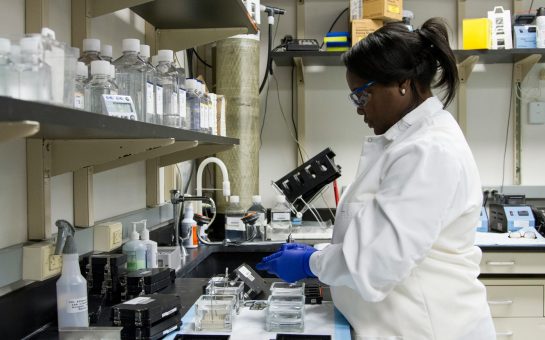
Cervical screening up-take is falling despite new research suggesting cervical cancer deaths could halve were every woman to attend her invitation, saving the NHS £10m a year.
Currently 22% of women in the UK fail to take up their invitations which ends up having a considerable rippling effect not only on their personal lives but on the national economy if they go on to develop cancer.
As working women made up 84% of those diagnosed, the result of them cutting their hours or leaving work was a £5.8m loss of income tax and NI contributions a year.
The findings by think-thank Demos are supported by Jo’s Cervical Cancer Trust which is campaigning to highlight the importance of the smear test throughout Cervical Screening Awareness Week (June 8-14).
“Cervical cancer is very treatable, and particularly if it’s caught early,” said Robert Music, Chief Executive of Jo’s Cervical Cancer Trust.
“It has a big impact on fertility, quality of life, ability to work and breakdown of relationships. The later the stage of the cancer, the more invasive the treatment and then the survival rates go down more significantly.”
Between 2012-2013 about 3.32m out of the 4.24m women invited for a cervical screening in the UK were tested and in London only 74.1% attended.
Professor Julietta Patnick, Director of the NHS Cancer Screening Programmes, said: “While it is encouraging that cervical screening coverage has remained steady at around 78.3% over the last few years, we are concerned by the overall downward trend over the last 10 years.”
The figures for South West London are:
Croydon 76.8% of women attended screening
Hammersmith & Fulham 65.5%
Kingston 75.2%
Lambeth 75.5%
Richmond and Twickenham 77.9%
Sutton and Merton 76.8%
Wandsworth 75.0%
It also showed that young women are often embarrassed and scared as well as not really understanding what the test is for.
“London has got a lower up-take compared to many parts of the UK so it’s an area we particularly want to focus on, it’s a very good opportunity to reach working women,” said Mr Music.
He said the Trust’s research shows a whole range of barriers as to why screening up-take has decreased, dependent on age, ethnicity, and potentially women’s faith groups.
Professor Patnick said: “A particular concern is the low coverage among 25 to 29-year-old women.
“Despite the increase in numbers attending screening following the media coverage of Jade Goody’s diagnosis and death from cervical cancer in 2009, coverage in these younger women is 10 per cent lower than in 30 to 34 year olds, and 20 per cent lower than in 50 to 54 year-old women.”
Research found that working women find it hard to get time off work and even to book an appointment at a GP surgery and so put it off.
Sue Watts, 40, from Earl’s Court, is a cancer survivor who volunteers for Jo’s Cervical Cancer Trust. She was diagnosed at 34 thanks to a smear test.
“I thought it was just, I don’t know, anemia, or having a baby and working full-time,” she said.
“Smear tests are not the most pleasant thing in the world to have done to you to be fair and I think a lot of people would rather not do things that are unpleasant. I put mine off slightly because I wasn’t registered with the doctor, and then I got pregnant, and so on.”
Ms Watts had to have chemotherapy, radiotherapy, brachytherapy, and still has to deal with the side effects.
She said: “I was in hospital in the cancer ward and I was very ill for a very long time, for six months, but then they managed to cure it – so hooray for science!”
Mr Music said early stage cancer survival rates are at 95-98% and that too often women were diagnosed after delaying their smear test.
“You’re body is a bit like a car and you need to go and have your MOT and just make sure everything’s okay, if there is a problem, then you need to have it looked at.
“It’s good to go and get checked out, you shouldn’t be afraid because it’s not that bad and it saved my life basically,” said Ms Watts.
The Trust feels that there isn’t enough investment in targeting in terms of education work. One of the things it is calling for is targeting people locally from a bottom up approach, and wants people from government to GPs and employers to help make it a disease of the past.
The charity is holding the ‘Walk for Fun’ on June 14th at 10am in Hyde Park, as well as others around the country. Check www.jostrust.org.uk for details and raise awareness with #CSAW.

